GUARDING OUR GUARDS
By Anna Teoh
“For those of you taking this service lift for the first time, don’t be shocked. There is a security guard who sits in the lift,” a friend sounded out.
“What?”
The elevator doors opened, and there he was, sitting on a plastic chair. We stepped in, he checked our ID passes and then pressed the button for our floor.
All day long, in this lift, he waits for instructions on his walkie-talkie telling him which floor buttons to press for building contractors, janitors and odd workers. Things like job satisfaction, meaning and purpose are luxuries far beyond his grasp of a career path.
Meanwhile, his peers are doing the carpark watch – on their feet, in the sun, no air-conditioning. Compared with them, lift-man is having it much easier, so no, he doesn’t complain about his working condition. Nor does he grumble about the long working hours; in fact, he’s very thankful he has a job and money to send home.
Malaysia employs an estimated 5.5 million migrant workers, of which 350,000 are Nepali security guards*. From poverty-stricken families, their military backgrounds provide them with an opportunity for employment abroad, guarding buildings and neighbourhoods. But once here, they are faced with the reality.
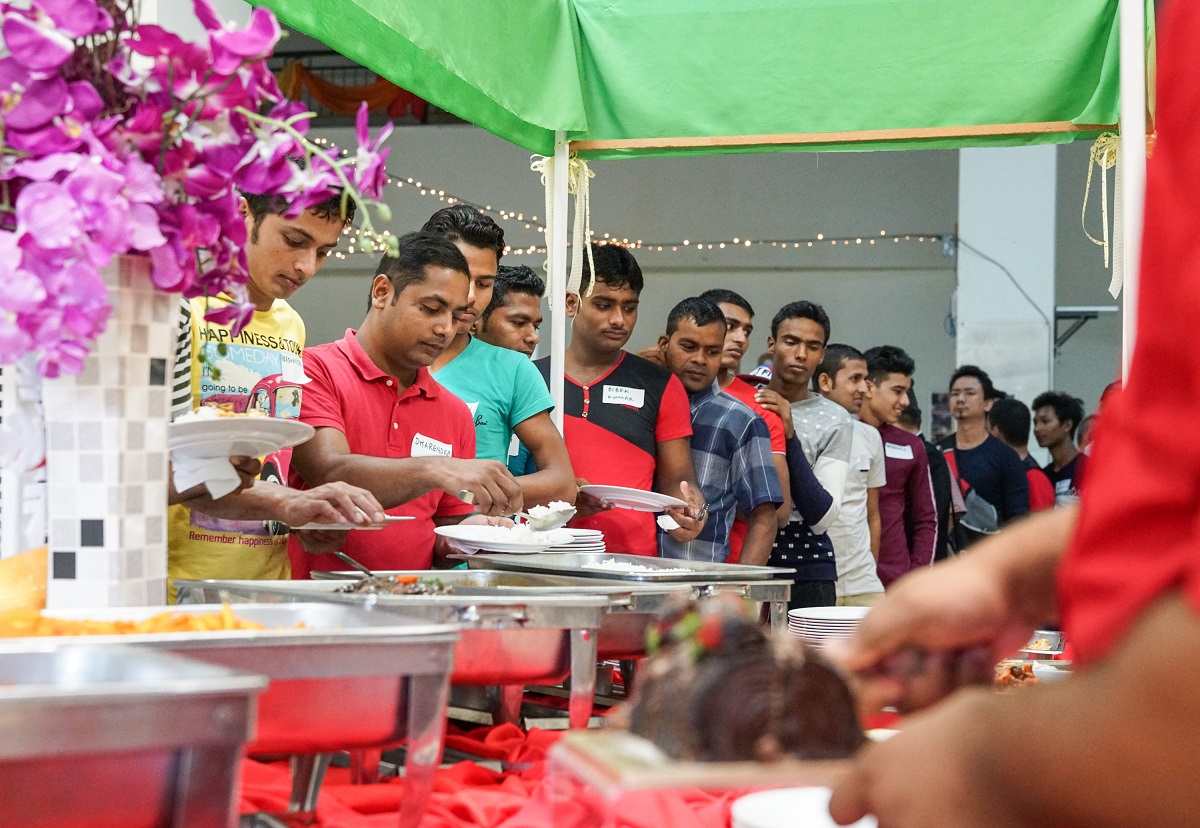
Barely a home
Damansara Utama: Nestled among other double-storey terrace houses with plants in the garden and a car or two parked in the front porch is a house that sticks out like a sore thumb.
Its exterior walls are stained and inside, it is sparsely furnished – metal bed frames with thin mattresses, old cabinets and flimsy tables, plastic chairs and a basic stovetop. Its inhabitants walk in and out at odd hours of the day, dressed in smart uniforms. This is home to more than 10 Nepali security guards.
Poor hygiene and dire living conditions have affected their health and wellbeing over time. Aside from battling tiredness and loneliness, some suffer sores on their necks and fungal infections between their toes due to perspiring throughout the day.
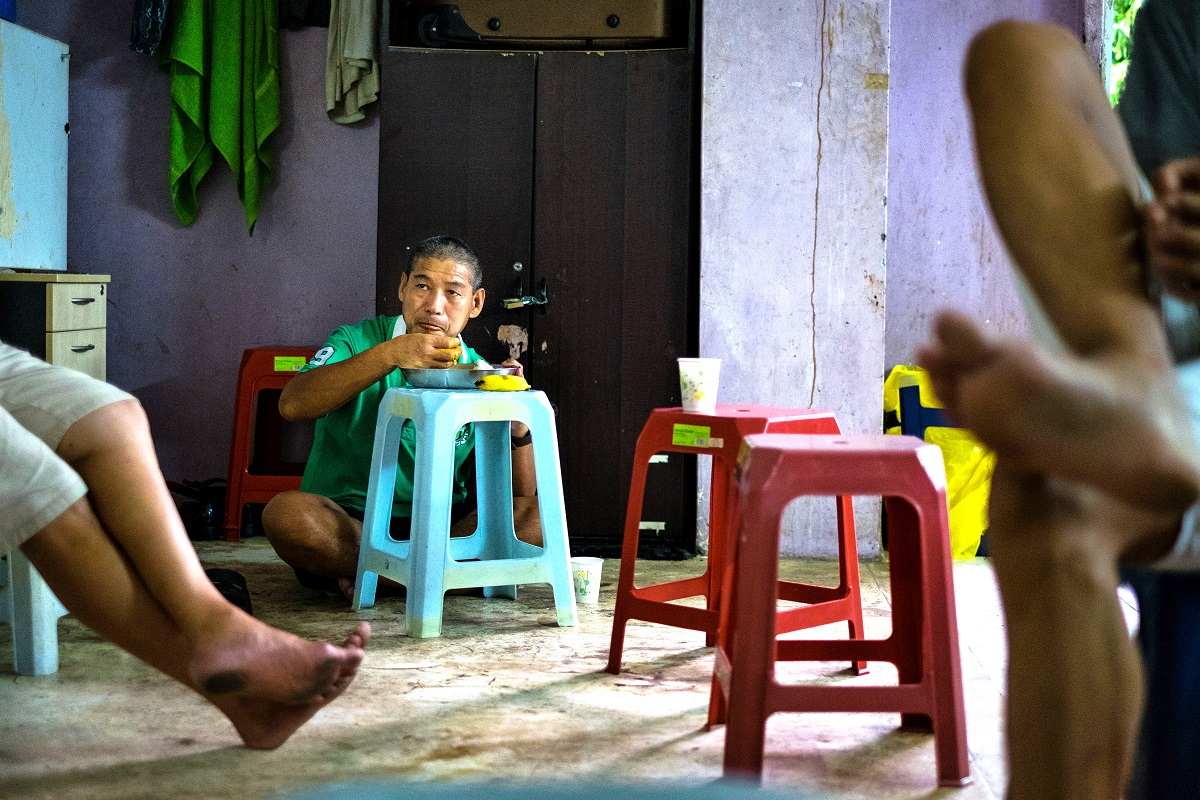
Turned into clinic
Once a month, this house is transformed into a clinic run by Petaling Jaya Evanglical Free Church (PJEFC) under its Migrant Ministry. Medical practitioners who attend PJEFC volunteer their time to provide treatment for various health conditions, thus greatly improving the guards’ wellbeing. Through conversations and simple acts of kindness, this house has become a light to the Nepali security guard community.
From the genuine relationships built, the Migrant Ministry has also grown to holding Nepali services in the PJEFC church halls, called sangati, which means “fellowship”. It is a lively affair, and quite a sight to behold, where normally glum and serious-looking guards turn into laughing young men, singing and dancing to familiar songs in their mother tongue.
As Nepal is home to the highest mountain on Earth, it is no wonder that the guards love to sing praises to God about breathtaking mountain ranges and nature. The sangati in PJEFC is kept short because these security guards do not usually have long breaks. A hearty home-cooked meal prepared by the church ladies is then served. Before heading off to work, the guards can pick up donated clothes and belts which have been carefully sorted by type and size.
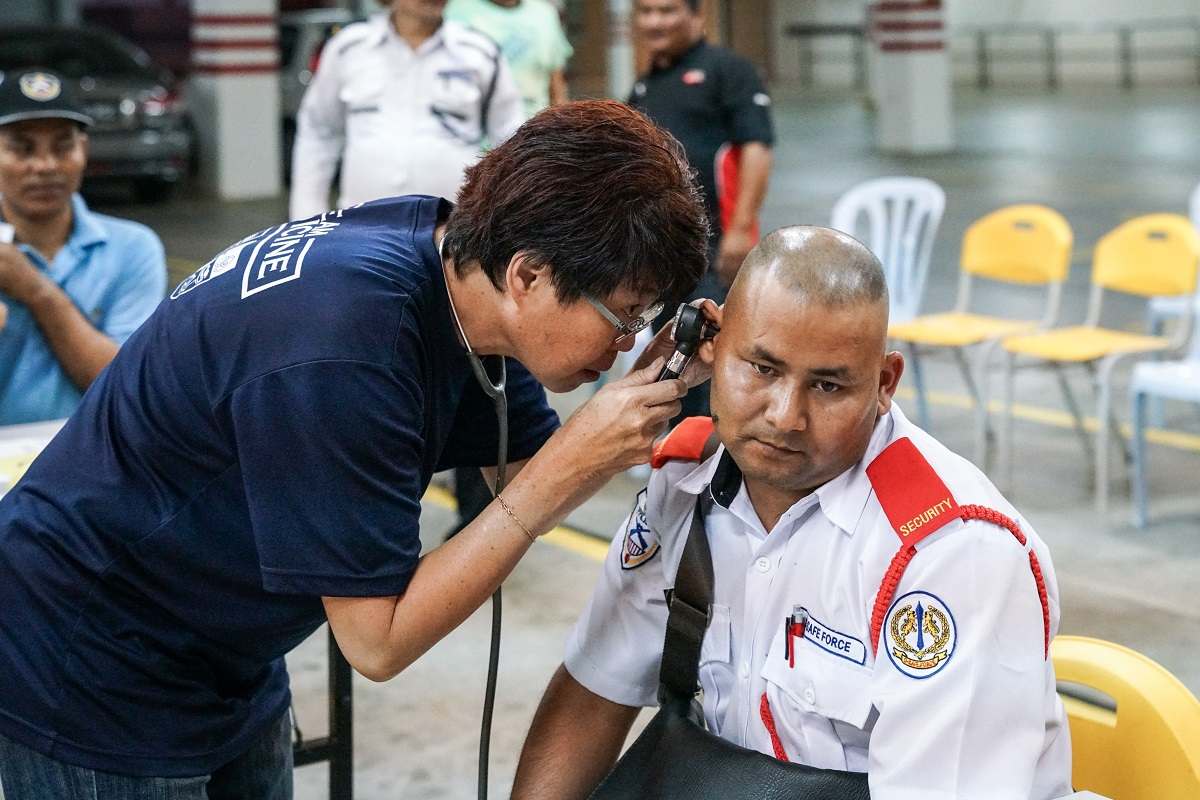
Serving those who serve us
Are the workers who serve us not also children of God? The nations are at our doorstep, and it is not difficult to extend a warm helping hand to the migrant workers in our midst – to show them the love of Christ so they can feel less displaced in a foreign land far from home. Perhaps, if you stop to look them in the eye, you might find it becomes harder to close an eye on their plight.
Pastor Jeremy Lim, who heads the PJEFC Migrant Ministry shares: “The world that we live in today is borderless, as migration has become a norm for many people groups. This has tremendously reshaped the landscape of missions – instead of sending out missionaries, we now are called to ‘diaspora mission’, a missiological framework for understanding and participating in God’s redemptive work among people living outside their place of origin.
“According to renowned missiologist Winter Ralph, diaspora mission is the cutting edge of missions, with many strategic values in reaching ‘global peoples’. Yet, it is also one of the most undigested realities in mission thinking today [because] we simply have not caught up with the fact that most of the world’s people can no longer be defined geographically.”
Ps Jeremy urged: “Missions is no longer land-locked and geographically focused. Instead, the priority of diaspora mission is every person outside the Kingdom everywhere. Thus, my prayer for you is to recognise and be moved to respond to the immense missional opportunities presented by global migration and diaspora communities living around us.”
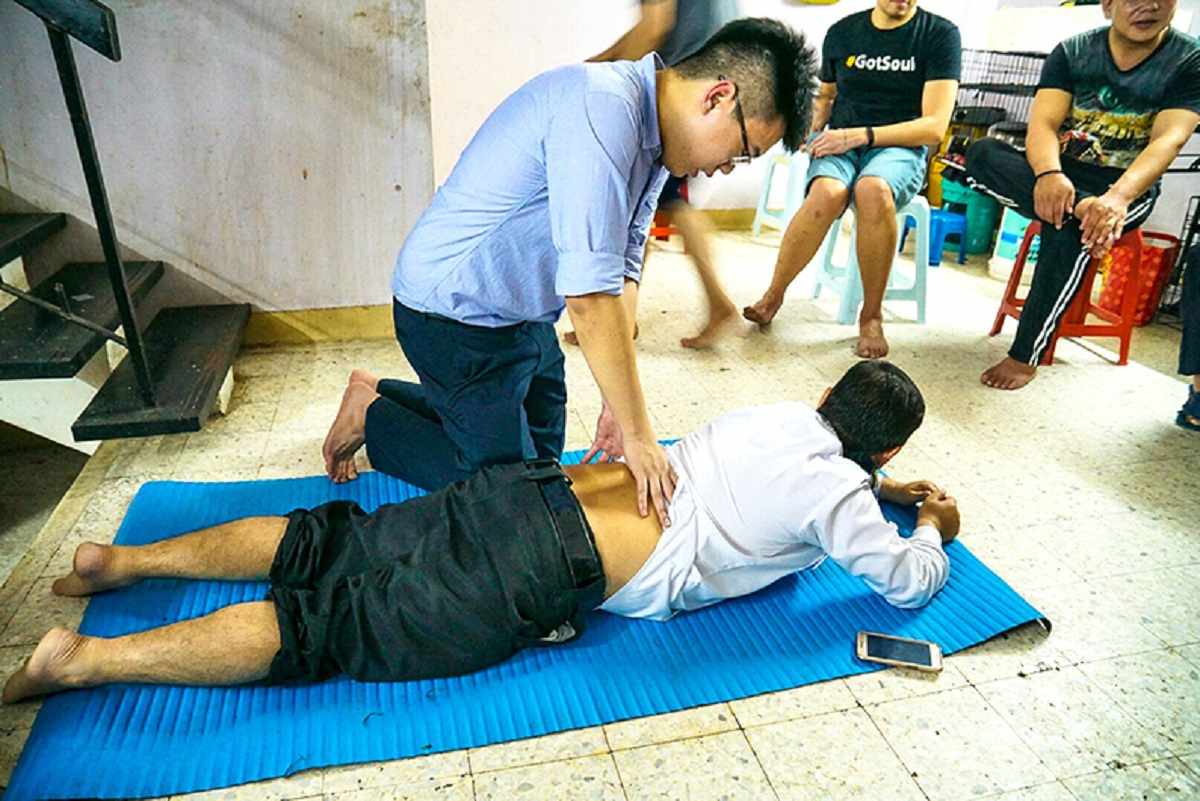
THE MYSTERIOUS RELEASE
John Krishna, a Nepali security guard in his late 40s, has been working in Malaysia for four years. One evening as he was walking home after work, a police car suddenly swerved in front of him and stopped him. The police told him to get into the back of the car. He had no choice. Sitting in the moving car, he was confused and frightened. He prayed, “Lord, if you are real, save me, and I will follow you for the rest of my life.”
Almost immediately, the car suddenly made a U-turn, drove back to his workplace security post and simply said, “Okay, you can go.” John was stunned and until today, he still does not know the reason for his sudden release. This was his second encounter with God.
His first encounter was when he witnessed healing for his daughter back in his village in Nepal. For 11 years, she had suffered from an abnormal illness that threw her into multiple fits of seizures every day. John had spent his savings seeking treatment for her, visiting doctors and Hindu priests.
On the verge of giving up, he was encouraged by a Christian relative to seek prayers at the village church. Desperate, he did just that and miraculously, his daughter slowly healed to the point that she could walk and talk normally. Although John’s wife and daughter became Christians thereafter, he remained a devout Hindu.
However, God pursued him all the way to Malaysia. Upon arrival, his company stationed him at PJEFC. He was delighted to find a caring community here, but never really committed his life to God – until this second encounter. This time, God had come through for him. He kept his word and became a follower of Christ. God helped him overcome his drinking habit and he also stopped hanging out with the wrong crowd. John is now a regular worshipper at the sangati and is growing in the Lord.
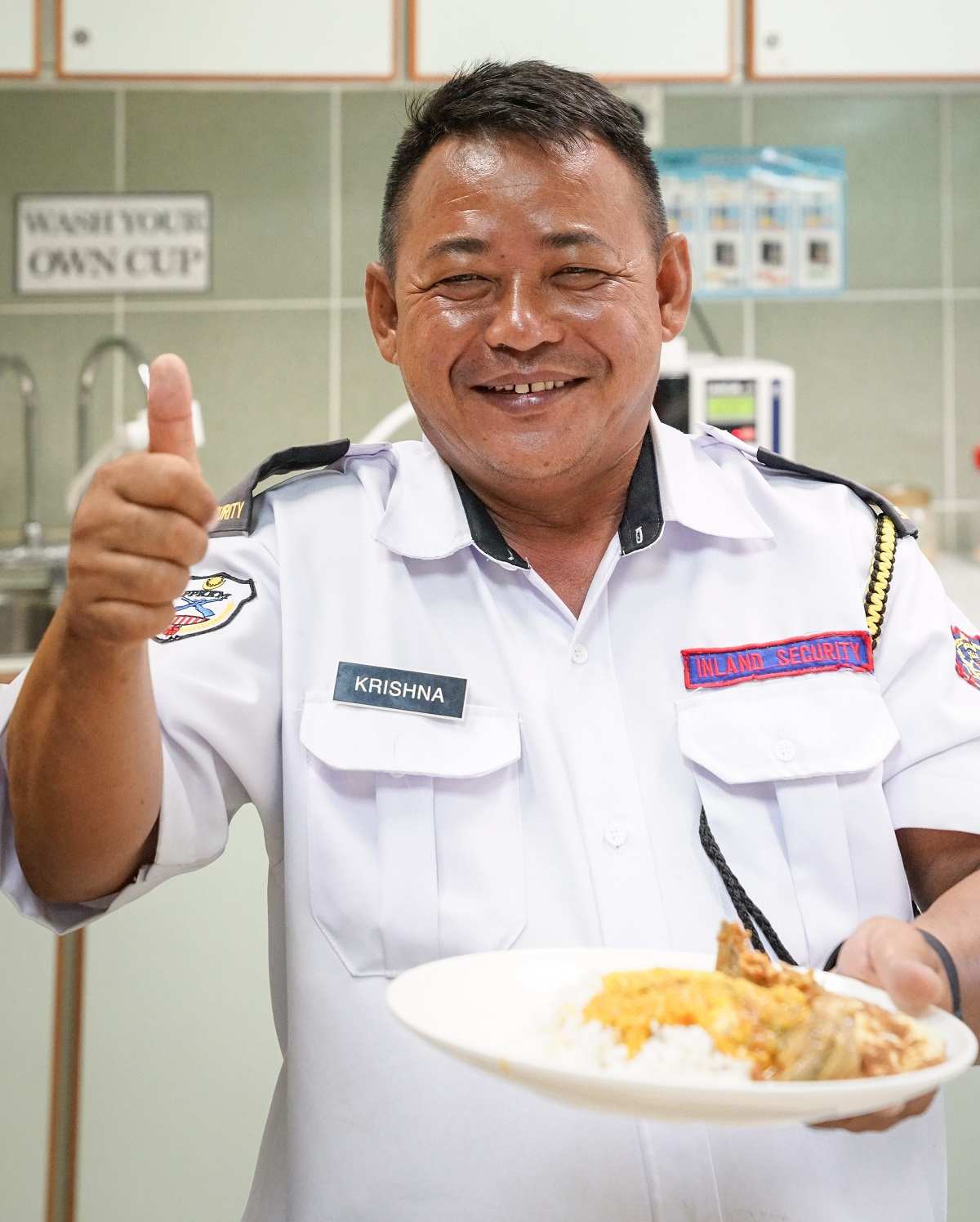
*Sources for statistics on number of migrant workers in Malaysia:
https://www.iseas.edu.sg/images/pdf/ISEAS_Perspective_2018_25@50.pdf
https://www.thestar.com.my/opinion/letters/2017/07/25/security-firm-is-irresponsible/
Asian Beacon: Oct – Dec 2018 (Vol 50 #4, p38-39)
